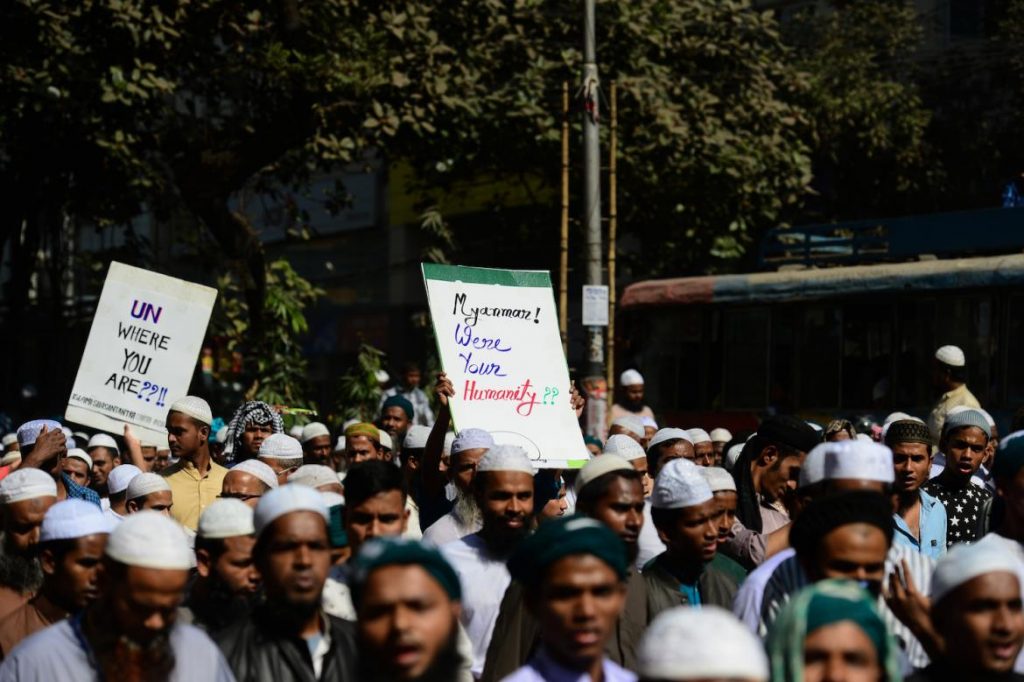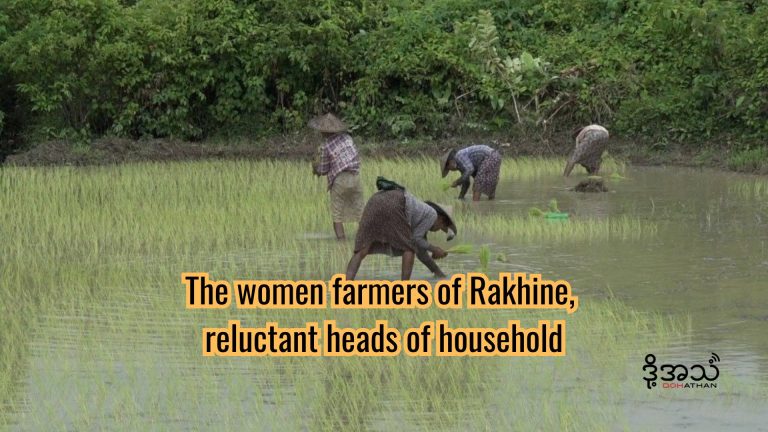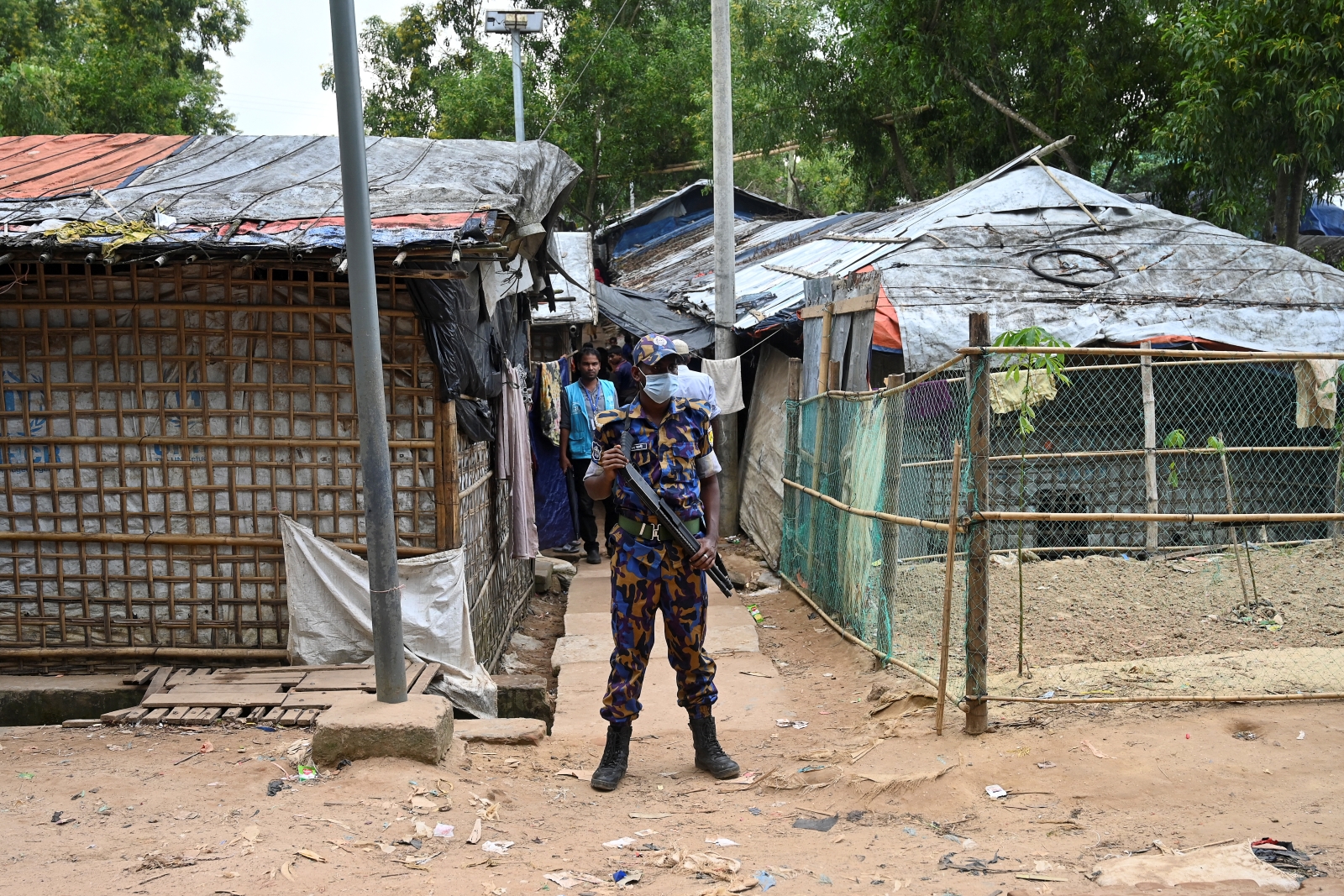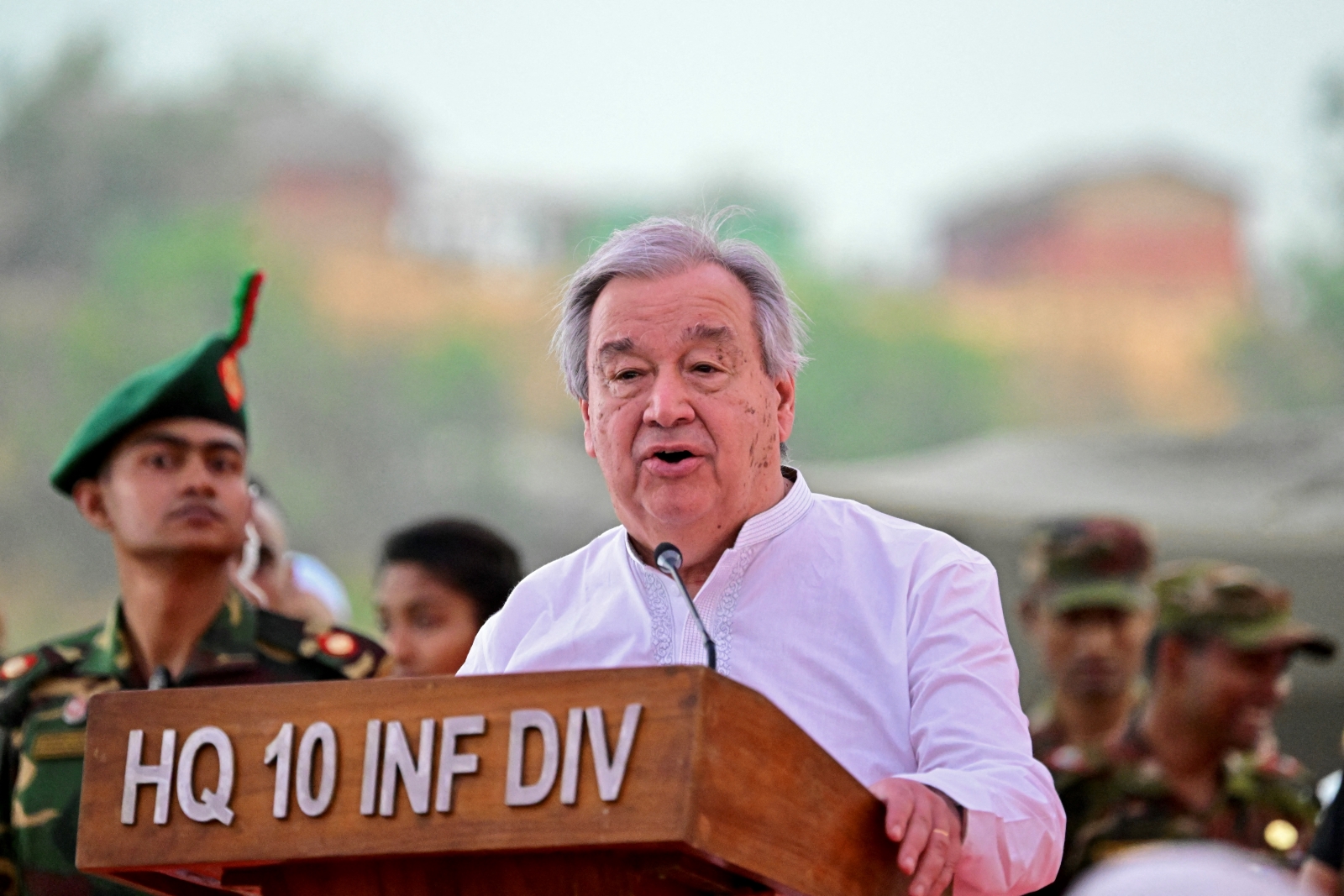By AFP
KUALA LUMPUR — Bangladesh’s Prime Minister on Wednesday asked Myanmar to take back tens of thousands of refugees who have fled a military crackdown in Rakhine State, an official said.
According to the UN, at least 65,000 people belonging to the Muslim community in Rakhine, many of whom self-identify as Rohingya, have fled to Bangladesh from Myanmar — a third of them over the past week — since a military operation was launched in October following attacks on police posts.
The figure marks a sharp escalation in the numbers of Rohingya fleeing a military campaign which rights groups say has been marred by abuses so severe they could amount to crimes against humanity.
The sudden influx has put enormous strain on impoverished Bangladesh, with Dhaka under pressure to open its border to the refugees. But it has instead reinforced its border posts and deployed coastguard ships to prevent fresh arrivals.
Support more independent journalism like this. Sign up to be a Frontier member.
Bangladesh Prime Minister Sheikh Hasina called for a resolution to the crisis during a meeting with Myanmar’s deputy minister for foreign affairs U Kyaw Tin in Dhaka.
“She said Myanmar should take back the Rohingya who migrated to Bangladesh,” Hasina’s spokesman Ihsanul Karim said.
Last month the Bangladesh foreign ministry summoned Myanmar’s ambassador to express “deep concern at the continued influx” and called for the repatriation of some 300,000 Rohingya who have been living in the Muslim-majority nation for years — most of them illegally.
The most recent arrivals have brought harrowing accounts of rape, murder and arson at the hands of Myanmar’s army or police.
Their stories have raised global alarm and galvanised protests against State Counsellor Aung San Suu Kyi, who has been accused of not doing enough to help the Rohingya.
Myanmar’s government has said the claims of abuse are fabricated and launched a special commission to investigate the allegations.
Last week the commission presented its interim report, denying accusations of “genocide and religious persecution” and saying there was insufficient evidence that troops had been committing rape.
The government refuses to recognise the Rohingya as one of the country’s ethnic minorities, instead describing them as Bengalis — or illegal immigrants from neighbouring Bangladesh — even though many have lived in Myanmar for generations.
Malaysia to host OIC meeting on Rohingya
Meanwhile, Foreign ministers from the Organisation of Islamic Cooperation will meet to discuss the Rohingya crisis next week in Kuala Lumpur, a Malaysian official told AFP Wednesday.
Fifty-six OIC representatives are expected to attend the January 19 meeting which will be led by Malaysian Prime Minister Najib Razak, who recently called on Myanmar to stop the “genocide” of Rohingya Muslims.
In November, Kuala Lumpur summoned the Myanmar ambassador while around 500 Malaysians and Rohingya migrants protested outside the embassy.
A senior Malaysian minister has also called on ASEAN, the ten-country Southeast Asia bloc, to review Myanmar’s membership, while the foreign ministry has accused Myanmar of engaging in “ethnic cleansing.”







